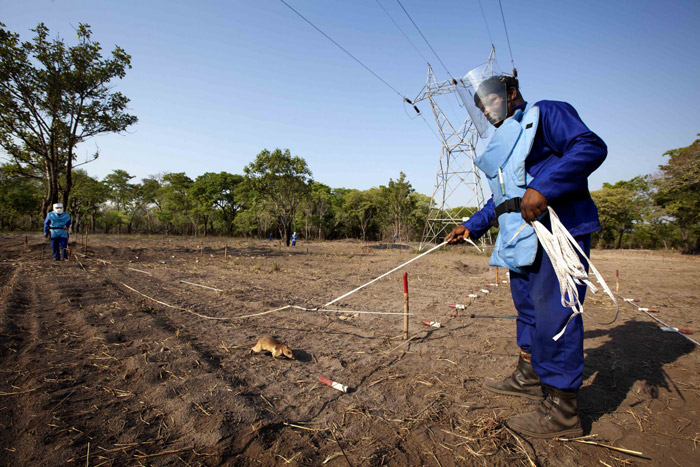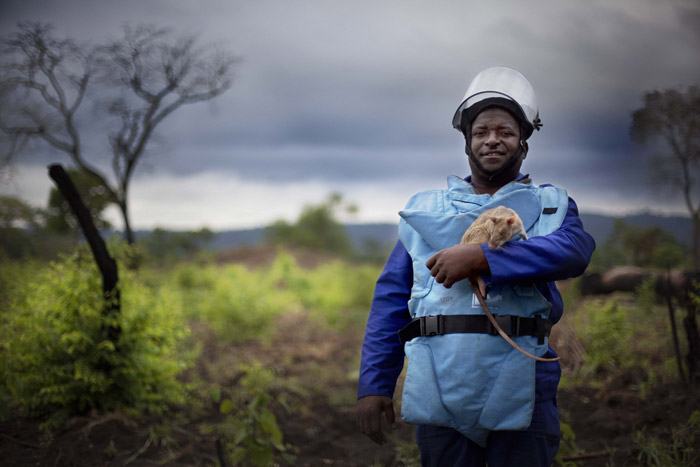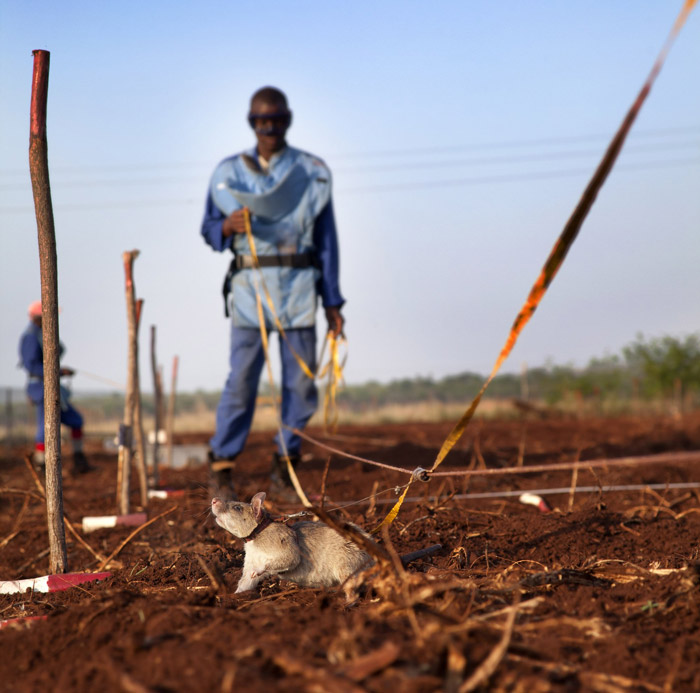His Excellency Minister Oldemiro Júlio Margues Baloi – Mozambique’s Minister of Foreign Affairs – has declared the country free of all known landmines.

APOPO, has been working in the country to help clear the landmines since 2007, extended their heartfelt congratulations to the people and government of Mozambique. Tess Tewelde, APOPO’s Head of Mine Action Africa, said, “APOPO is extremely proud to have played a part in this historic achievement that now allows the people of Mozambique to finally live without the fear of landmines and explosive remnants of war.”


Following the completion of remaining landmine sites in Manica and Sofala provinces in early 2015, APOPO proudly and safely finalised all their humanitarian tasks in Mozambique, in the process destroying a total of 13,274 landmines and returning 11,124,446 square metres of land for safe and productive use.
APOPO has helped rid five provinces of landmines, returning safe land to local communities to live, work, farm and play without fear. Most households in these areas are headed by smallholder farmers who have been unable to use the land to grow crops and sustain their livestock for decades until APOPO arrived to clear and release the area.
APOPO remains in the country at the request of the National Institute of Demining to continue providing technical expertise and capacity for any residual or remaining clearance work, such as the former ammunition store now known as the Malhazine Ecological Park, which Mozambique’s Ministry of Environment is transforming into a nature reserve, educational and tourism centre.

Mozambique’s landmine problem was once one of the most severe in the world, with a legacy of landmines and explosive remnants of war from decades of conflict. Thousands of landmines were laid in the country during its 1964-1975 fight for independence and the following civil war. All factions used landmines to defend provincial and district towns, roads, airstrips, key bridges, power supply infrastructure and military posts. Although the civil war ended in the early 1990s, landmines and unexploded ordnance have continued to claim hundreds of lives of innocent people and hinder development.
A large-scale mine clearance effort was launched in 1993 by the United Nations Operations in Mozambique and international NGOs. At that time, Mozambique was considered one of the most mine-affected countries in the world.

As well as traditional approaches to mine action such as manual de-miners with metals detectors, ground preparation, and de-mining machines, APOPO also deploys its unique mine detection rats to help speed up operations as they detect only explosive material (TNT) and ignore harmless scrap metal. One HeroRAT can check an area of 200m² in about 20 minutes – a task that would take a conventional de-miner up to four days.
To comment on this story: Login (or sign up) to our app here - it's a troll-free safe place 
![]()






